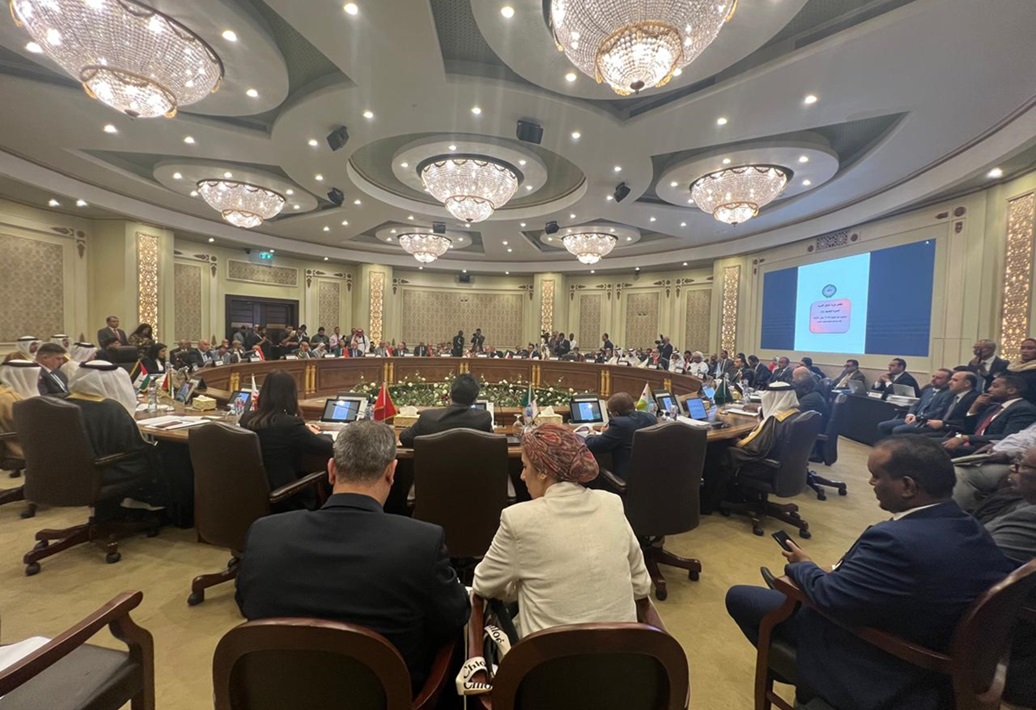LOC16:31
13:31 GMT
 The 38th session of the Council of Arab Ministers of Transport
The 38th session of the Council of Arab Ministers of Transport
CAIRO, Nov 10 (KUNA) -- The 38th session of the Council of Arab Ministers of Transport, chaired by Kuwait, kicked off on Monday, to discuss several topics, including sustainable transport and cooperation in the logistics sector.
In his speech, Assistant Secretary-General and Head of the Economic Sector at the Arab League, Ambassador Dr. Ali Al-Malki affirmed that the transport sector is a fundamental element for achieving regional integration, improving the quality of life, and reducing poverty in the Arab region.
Al-Malki said that the importance of the transport sector in Arab countries increases by the labor-intensive sector, employing about 10 percent of the workforce. Therefore, developing this sector is a central element in achieving their main goals related to accelerating economic development and creating new job opportunities.
He noted that the transport sector contributes to about 22 percent of service revenues in the Arab region and about 7 percent of the gross domestic product of Arab countries.
"Technological advancements have played a leading role in the transportation sector, indicating that in the trucking and logistics sector, modern technologies have been integrated into the trucking industry, thus increasing confidence in self-driving trucks on highways," he pointed out.
He noted that traditional truck manufacturers have successfully deployed these vehicles, which has enhanced long-distance transport operations without the limitations of human endurance and improved road safety, while the data collected by these autonomous systems is used to optimize routes and reduce downtime.
He added that the Internet of Things (IoT) continues to revolutionize the logistics sector, enabling more accurate tracking of goods and vehicles, and that IoT devices provide real-time data used by logistics companies to improve supply chain operations, reduce costs, and improved service delivery, as this data-driven approach facilitates a more predictable logistics environment, allowing companies to anticipate problems before they occur.
Meanwhile, on his part, Permanent Representative of Palestine to the Arab Legue, Ambassador Muhannad Al-Aklouk, affirmed in his speech which was delivered on behalf of the Palestinian Minister of Transport that rebuilding the Gaza Strip and strengthening the resilience of the Palestinian people, enabling them to live and regain their freedom, is not merely a matter of technical engineering or logistical management; it is part of a broader process of ending the illegal Israeli occupation, dismantling its effects, and achieving peace, security, and stability.
He stressed that reopening roads, removing rubble, and restoring transportation are urgent humanitarian necessities to ensure access to food, water, and medicine, facilitate the work of hospitals, and support the return of economic and social life in Gaza.
He added that the consensus of the transport ministers to allocate a permanent item to support Palestine at the top of the Council's agenda represents a fundamental step in Arab solidarity, noting that implementing the ministers' decision to support the reconstruction of transport infrastructure in Gaza is not only a humanitarian necessity but also a genuine Arab commitment to ensure the resilience of our people in the face of genocide and to enable them to restore their normal lives.
He concluded his speech by calling upon the Minister of Public Works Dr. Noura Al-Mashaan to assume the presidency of the 38th session of the Council of Arab Ministers of Transport, wishing her and Kuwait every success in leading this session of this council towards further achievements and contributions.
Minister Al-Mashaan is heading Kuwait's delegation in the meeting, which includes Kuwait's Permanent Representative to the Arab League, Ambassador Talal Al-Mutairi. (end)
mm.bb